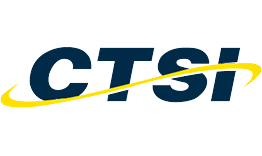7 Advantages of Managed IT Services
Many small to mid-sized organizations are turning to Managed Service Providers (MSPs) to help alleviate some of the strain on their internal IT resources, or take over the management of their network all together.
There are quite a few benefits to partnering with an MSP, from improved reliability to a better understanding of assets, which are all valuable in their own right.
These are a few that top the list for most organizations considering some form of Managed IT Services. . .
First of All, What Is ‘Managed It Services’?
A quick Wikipedia search turns up the definition: “Managed services is the practice of outsourcing day-to-day IT management responsibilities as a strategic method for improving operations.”
A managed services provider (MSP) is defined as “. . .typically an information technology (IT) services provider, who manages and assumes responsibility for providing a defined set of services to their clients either proactively or as they determine that the services are needed.”
7 Advantages of Managed IT Services
1. 24/7 Monitoring & Proactive Maintenance
As it stands right now, most businesses don’t have a way to monitor their network 24/7/365 and be notified immediately when a potential problem arises.
This can be an invaluable feature because the earlier an issue is realized, the earlier it can be resolved.
24/7 monitoring allows for most issues to be realized and proactively resolved before they become major problems resulting in significant downtime.
2. Budgeting
Planning for technology is difficult because things can change in a moment’s notice if a computer or server crashes.
When that happens, budgets are busted on unplanned repair services. With a fixed monthly cost, Managed Services allow for businesses to better budget for their service costs as well as preparing for upgrades.
Most MSPs have repair and service work already built into the contract, along with the ongoing maintenance already taking place.
3. Comprehensive Reporting
Insight into the activity on your network is vital to determine how you will allocate your budget for the future and knowing what your employees are doing online.
Without this reporting, you have no real way of knowing what issues have been resolved, where issues occur more frequently, or which areas of your network need to be shored up.
Most MSPs can provide in-depth reporting on error messaging, problem remediation, and user activity and should offer at least a bi-annual review of these reports so that you understand what is happening on your network.
4. Staff Availability
Whether your business has an internal IT staff or someone with split duties within your organization, you have a resource dedicated to handling the day-to-day maintenance and upkeep of your network.
If that person is a dedicated IT person, they probably don’t have the time to do what needs to be accomplished because they are constantly putting out fires. If that person has split duties (IT and Accounting or Operations, for example) they don’t have time to fully focus on either of their duties in order to accomplish what their primary job entails.
A basic Managed Service package allows your IT person to focus on what really needs to be done instead of the day-to-day maintenance and allows your split resource the ability to focus on their primary job, instead of worrying about the technology working properly.
5. Efficiency
With the toolsets available to MSPs, issues are immediately reported and acted on and by not having to put out “fires” after they have caused noticeable issues or downtime, end users can have more streamlined and efficient experience.
With proper planning and notification, patches and updates can be scheduled in a way that there is no disruption to the end user during working hours.
6. Knowledge Base
When working with an outsourced technology company of any kind, one of the key benefits is being able to access their broad range of knowledge on more than one area of focus.
They have an entire staff available to tackle just about any issue that may arise as well as advise or take on any project that needs to be implemented.
A good technology provider invests in its staff to ensure that their engineers have the most recent certifications for the services they offer and vendors they work with.
7. Improved Security
Security is a common concern among most business leaders and having up to date security protecting your network is arguably the most important aspect of a business’s technology.
Managed Service packages generally offer a solution to monitor your Firewall, Anti-Virus, and apply the latest updates and patches to ensure that your network is as secure as possible.
Computer Transition Services, Inc offers multiple Managed Services Programs with different support levels to fit your business IT needs, so you’re sure to find a program that’s the right fit for you!
Contact us to learn more about how Managed Services can help your business.








